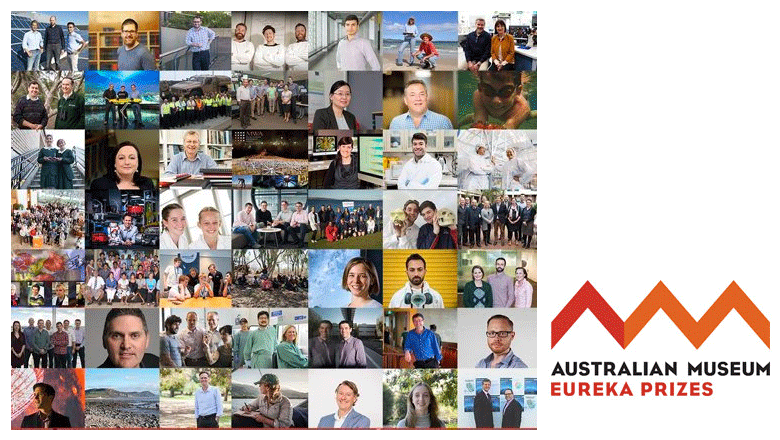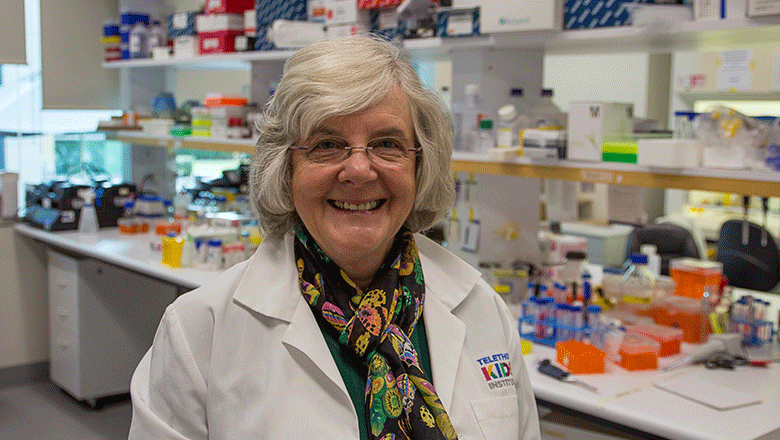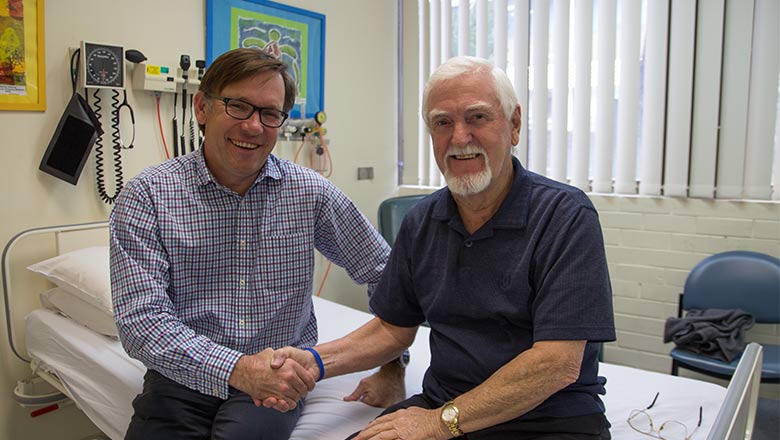Search

News & Events
The Kids Research Institute Australia researchers finalists for 2016 Eureka PrizesThree Perth researchers from The Kids Research Institute Australia have today been named finalists for the 2016 Australian Museum Eureka Prizes.

News & Events
Perth scientist receives prestigious honourAn internationally recognised researcher at The Kids Research Institute Australia has been made a Fellow of the Australian Academy of Science

News & Events
Vaccine trial aims to curb ‘superbug’Sarah Le Roi knows well how debilitating Clostridium difficile infection (CDI) can be. She was struck down with the 'superbug' while on holiday in the US.
News & Events
Wesfarmers Centre of Vaccine and Infectious Diseases Research Seminar Series 2014Wesfarmers Centre of Vaccine and Infectious Diseases Research Seminar Series 2014.Genetic and functional studies of leishmaniasis: understanding the role of HLA
News & Events
Large-scale study uncovers a single major genetic risk factor for fatal parasitic diseaseResearch has identified a critical genetic risk factor for a potentially fatal parasitic disease that affects up to 400 thousand people a year, mostly children.
News & Events
Infectious Disease & Vaccination Public SeminarHear the facts about vaccination and infectious disease from some of Australia's leading experts: Professor Jonathan Carapetis, Dr Peter Richmond
News & Events
Pneumonia rates improve in Aboriginal childrenNew research from The Kids for Child Health Research shows that the pneumococcal vaccine program has contributed to closing of the gap

News & Events
WANTED: 'Flu BustersHundreds of healthy volunteers are needed in Perth to test the effectiveness of a current 'flu vaccine.
News & Events
Bird flu vaccine produces promising resultsAn Australian-developed vaccine that's been trialed in Perth has been found to produce a strong immune response against the H5N1 bird flu virus.
News & Events
Meningitis study aims for fewer needlesPerth researchers are investigating a new combined vaccine to protect against three causes of potentially deadly bacterial meningitis.
